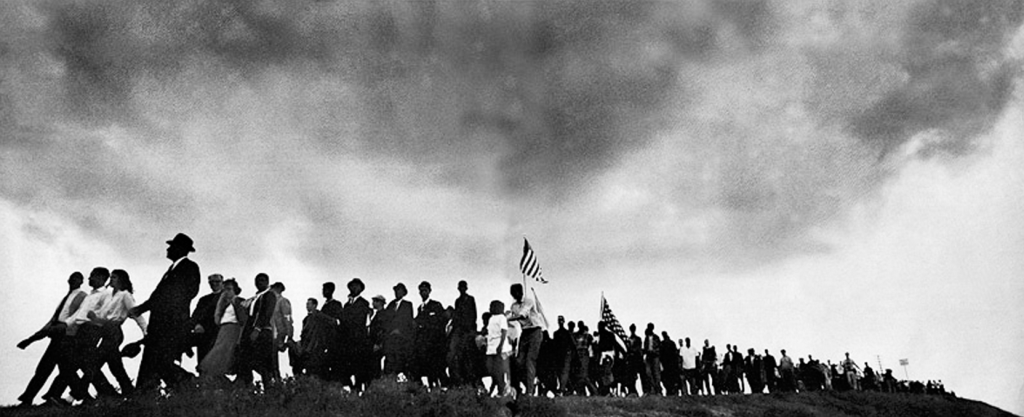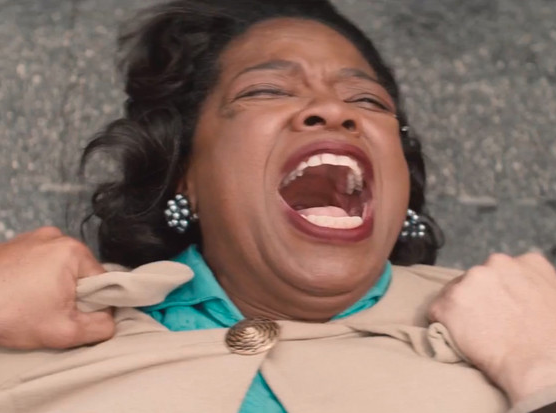KO Review of Selma
The world is in need of something right now. Something that inspires hope, something fruitful people of America can sink their teeth into, bite down on, enjoy and let it digest a while. Something that reminds people how far they have come and to keep going. The release of the film Selma, could not be timed more effectively with Ferguson, the New York choking issue, and everything that has created terror in the world since.
The film Selma chronicles Martin Luther King Jr. close to the end of 1964, receiving the Nobel Peace Prize for combating racial inequality through nonviolence. In 1965, he and the Southern Christian Leadership Conference helped to organize the Selma to Montgomery marches. With the SCLC, King led an unsuccessful struggle against segregation in Albany, Georgia, in 1962, and organized nonviolent protests in Birmingham, Alabama, that attracted national attention following television news coverage of the brutal police response. King also helped to organize the 1963 March on Washington, where he delivered his famous “I Have a Dream” speech. That’s where the film leaves off and closes with the song “Glory” from Common and John Legend.
I had the fortunate opportunity recently to see Selma at the Maui Film Festival: First Light Academy Screenings. It’s always important when viewing historical period pieces with a very critical eye as well as an open mind. Through whose eyes are you seeing this film? Look back to films like The Help (2011) or Malcom X (1992) if you want to emphasize the differences or perceptions further, especially where not only race, but gender is concerned. Director of Selma, Ava DuVernay made her feature-length film the documentary This in the Life (2008), a history on hip hop movement and emcees that flourished in Los Angeles in the 1990’s. This was followed by series of television music documentaries focused on women in hip-hop made for BET. DuVernay’s first narrative feature film, I Will Follow (2010), won her the African-American Film Critics Association award for best screenplay. Her follow-up, Middle of Nowhere (2012) won the Best Director Prize at the 2012 Sundance film festival, making her the first African-American woman to receive the award. All of this should give audiences comfort knowing not only that an African-American is directing this historical film about the march through Selma, but also that she is a female, with a vested interest in popular culture of her generation, but also post-contemporary African-American feminist culture. DuVernay is like the femaleSpike Leeof our time. In her own words DuVernay says “In documentaries, there’s a truth that unfolds unnaturally, and you get to chronicle it. In narratives, you have to create the situations so that the truth will come out.” Truth is a very important element in a historically accurate depiction of the civil rights march into Selma. Most of us watching the film certainly were not there to witness the march and have to rely on what footage was documented at the time of the marches and what has been written since for the truth. Otherwise we rely on first hand accounts by people present or movies reenacting these events.
It would make me uncomfortable in film school listening to my professors discuss the documented footage of the Rodney King beating, even though they spoke objectively in a scholarly way, there is something the actual footage says louder and clearer than any lecture could provide…. the truth. Hollywood filtered truths aren’t really truths at all, they are entertainment. With recent technology capturing pivotal civil rights truths on cell phone digital video, we see events paralleling the Rodney King beating sooner and in real-time. Enabling people’s reaction much quicker. Where does the truth fit in to the future when we have similar situations occurring in America today? There was actual found footage from the march in Selma implanted into the end of the film but this is many, many years later we are seeing it. There is a great importance for film makers to retell past events when they pertain to the current day affairs in the world, shining a new light on an old ongoing issues. People need to be reminded, Hollywood will put its spin on these past’s. Just how Quentin Tarantino put his stylized spin on slavery in Django Unchained, blood spilling out of control brutality, even though it may have been exaggerated for effect… these atrocities actually occurred at one time. It’s a movie, a story told from past events, not the news.
Was Selma entertaining? The acting in the film was certainly top shelf, star-studded in fact (Oprah, Common, Giovanni Ribisi). However even though the film closes with a beautifully inspirational song and there is a resolve in the plot, all of us in the audience know there is still a long way to go to finish what MLK started. #MarchOn




